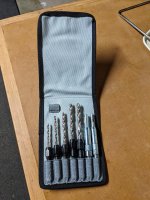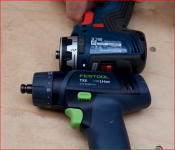FestitaMakool
Member
Yes, they are aftermarket accessories, there’s a long hex 1/4” bit holder, essentially the same bit holder you got with the kit, only longer. (2 differs sizes in fact, in addition to the standard length you’ve got)
The locking bit holder is the same as WERA’s: Search for BHS 60.
The locking bit holder is the same as WERA’s: Search for BHS 60.



